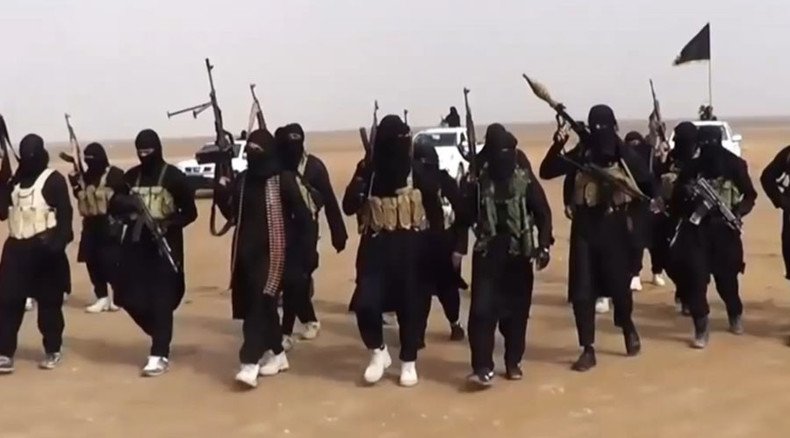ISIS used chemical weapons against Kurds – monitor

Islamic State (IS, formerly ISIS/ISIL) militants used poison gas while shelling a Kurdish village in late June, UK-based Syrian Observatory for Human Rights reports, citing medical testimonies and analyses.
While there have been unconfirmed reports of IS fighters using toxic substances in the past, the rights group claims it has documented the accounts from the June 28 chemical weapons attack in detail.
According to the Observatory, the attack targeted the village of Rajm al-Tfihi, located south of Tal Brak in Syria’s north-eastern Al-Hasakah Governorate.
12 YPG (Kurdish People’s Defense Units) fighters suffered vomiting, suffocation and eye-burns in the aftermath of an IS shelling of the village, the report says.
The monitor obtained doctors’ testimonies and laboratory analysis that it says confirm that the extremist group used some sort of a poison gas in the attack. It has not been determined whether the gas used was chlorine or another substance, the report says.
READ MORE: ISIS may have potential to 'build chemical weapons', Australia says
None of the Kurdish fighters hit by the chemical attack died, but only because they were promptly hospitalized, according to YPG spokesman Redur Xelil, as cited by Reuters.
This is the first documented case of IS using chemical weapons against Kurds, Xelil said.
The YPG has issued a statement saying that there have been recent incidents indicating that a chemical attack by Islamic State was possible. Kurdish militia is said to have captured industrial grade gas masks from IS, “confirming that they are prepared and equipped for chemical warfare along this sector of the front.”
The statement said the victims of the June 28 attack “experienced burning of the throat, eyes and nose, combined with severe headaches, muscle pain and impaired concentration and mobility,” as well as vomiting.
READ MORE: ISIS ‘launches new chlorine gas attack’ in Iraq’s Anbar – report
Meanwhile, the Observatory called on the UN Security Council to send an international probe to Syria to “detect the use of gases by IS and the regime troops across Syria.” Previously, the group had been blaming Syrian President Bashar Assad’s forces for launching several chemical attacks amid the Syrian civil war.
The use of chemical weapons in August 2013 in Ghouta – the outskirts of the Syrian capital – nearly triggered a military invasion into Syria amid international outcry. The attack, which was similarly carried out with a shell containing deadly nerve gas (sarin) killed more than 1,400 people according to some of the conflicting estimates. Damascus blamed rebel fighters for launching a provocation, while the Syrian opposition and the West laid blame on Assad.
READ MORE: On brink of Syria invasion: 1 year since Ghouta chemical attack
The atrocity was markedly carried out on the same day that a UN team of inspectors arrived in Damascus to investigate the March 2013 chemical attack in Khan al-Assal. UN Secretary-General Ban Ki-moon called the Ghouta attack “the most significant confirmed use of chemical weapons against civilians since Saddam Hussein used them in Halabja in 1988.”
The 2013 attacks were used as a pretext for gathering support for a new US-led intervention in the Middle East by a number of Western leaders. This ultimately failed due to international diplomatic efforts and lack of domestic support for new overseas wars in the aftermath of the unpopular Iraq War – launched under the false pretext of deadly Weapons of Mass Destruction allegedly in Hussein’s possession. In view of the precedent, Moscow urged Damascus to give up its entire chemical weapons stockpile, and Assad’s government eventually consented to a multinational operation that disposed of the arms. However, several smaller incidents of alleged chemical attacks have since been reported for which Damascus and rebel groups, including Al-Qaeda-linked Nusra Front, exchanged blame. The incidents have not been verified by international experts.












